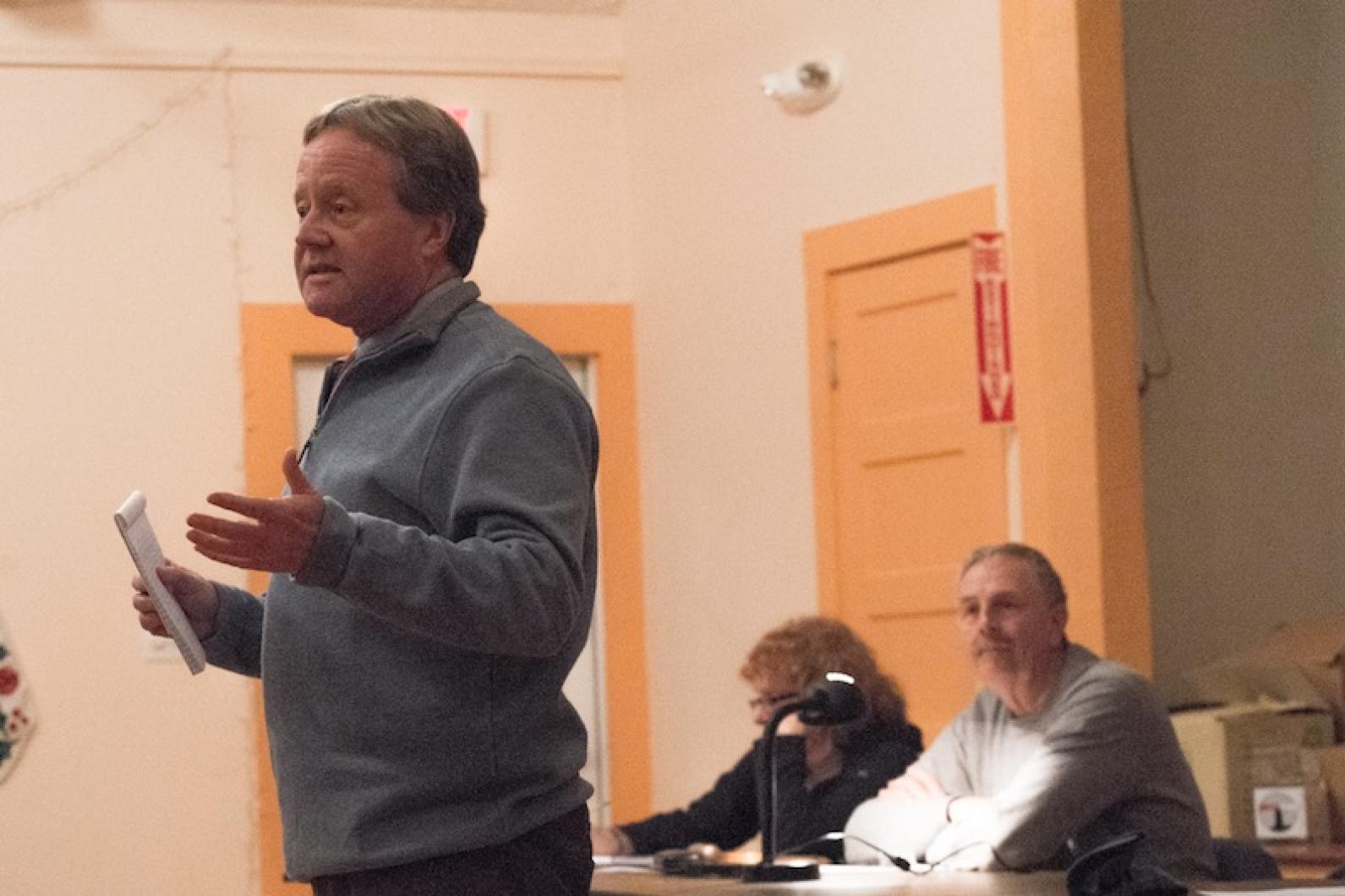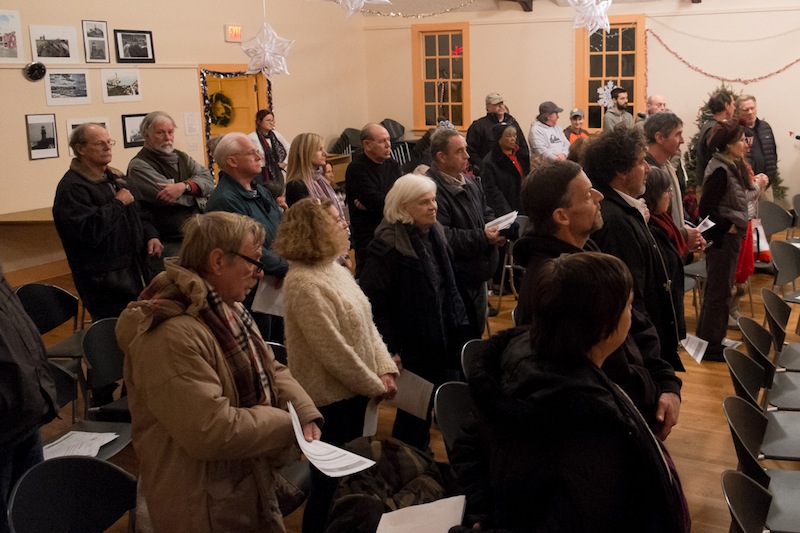A majority of Aquinnah voters opted Wednesday to fix a budget shortfall without resorting to department budget cuts.
About 50 voters — well above the 36 needed for a quorum — turned out on a frigid evening for a special town meeting convened after a series of missteps and miscalculations by town officials last year led to a $101,564 budget deficit. The discrepancy was discovered in December, and the Department of Revenue had directed the town not to issue its third quarter tax bills until the budget was balanced.
In a sudden turn at the meeting, the $101,564 deficit was reduced by almost half by the DOR, which had realized a mistake of its own. The deficit amount was reduced to $59,474.
Voters had several options. Articles one and two offered a choice between appropriating money from the town stabilization fund or combining some of those funds with a series of department budget cuts. A third article asked voters whether to transfer $23,500 from the town’s free cash account into a reserve fund to cover any end-of-year expenses until tax bills went out.
Article one passed 44-4, easily gaining a required two-thirds majority vote. The remaining two articles were withdrawn.
The town finance committee, along with the selectmen, had recommended that the money for balancing the budget be taken from the stabilization fund rather than through the combined budget cuts.
“In these kind of circumstances this is exactly what stabilization accounts can be used for,” town administrator Adam Wilson said.
At the outset of the meeting, Mr. Wilson explained the shortfall. He cited three major causes: paying off a short-term borrowing note too soon, a drop in revenue from town receipts such as parking fees and leases, and fewer people paying their back taxes in 2014 compared to 2013.
In December, town officials had attributed the borrowing note mistake in part to the transition to a new town accountant and treasurer last year. But on Wednesday, Mr. Wilson took personal responsibility for the mistake.
The $100,000 borrowing note, approved by voters several years ago, was used for a series of repairs to town hall. He said when the new treasurer came on board early last year, he received a notice from the bank saying the remaining balance on the loan was due. The treasurer alerted Mr. Wilson that the town needed to pay the balance. “I actually said to him, we should, because we’re done with that,” Mr. Wilson said. “We don’t need to borrow any more.
“My mistake, though, was that I had forgotten that that short-term note actually [should] not be paid off all at once. It should have been re-borrowed. We should have only paid $15,000 down and re-borrowed the rest. And I forgot to tell the treasurer that.”
The treasurer passed the bill to the town accountant, who paid the amount in full. When the town realized the mistake, Mr. Wilson told the accountant he didn’t think it would be a problem, since the town had passed a budget that had only grown by 1.5 per cent, and he had assumed the town would still be under the levy limit. Then local receipts and tax payments were down in 2014 and the deficit emerged.
Town officials will send minutes of the special town meeting to the DOR to show that the town has voted to balance the budget. If all goes well, the third- and fourth-quarter tax bills will be sent out by April 1 with payment due by May 1.





Comments (2)
Comments
Comment policy »